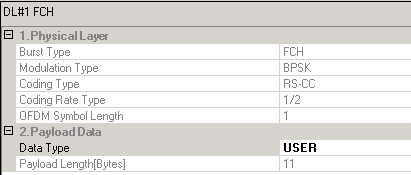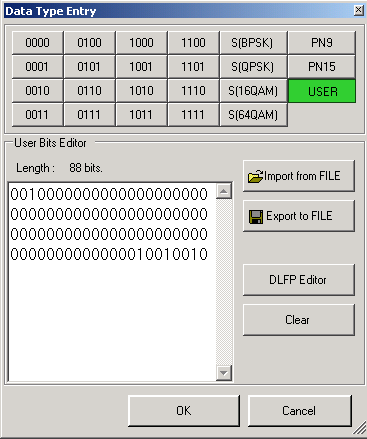
To access the FCH (Frame Control Header) editing window:

In the tree view under
Physical, click the DL# FCH you wish to edit.
or
Click Physical in the tree view to display all previously added bursts
in the right pane. Double-click the first column of the FCH you wish to
edit.
|
|
If you want to create a waveform with a valid standard-compliant FCH and DLFP, it may be easier to use the MAC PDU mode instead of the Physical mode. |
This cell displays the name of the burst type. You cannot edit this cell.
The modulation type is fixed to BPSK. You cannot edit this cell.
The coding method is fixed to RS-CC (Reed-Solomon-Convolution Code).You cannot edit this cell.
The coding rate is fixed to 1/2. You cannot edit this cell.
The OFDM length is fixed to 1. You cannot edit this cell.
Click Data Type and the down arrow to access the Data Type Entry window. For component test, you can select any of the data types, since the content of the FCH is not important. For a meaningful FCH, select USER to enter the WiMAX compliant data.

|
Select 4-bit data patterns, test sequences, or user-defined data for the payload data type. | |
|
Click USER to activate the User Bits Editor in the bottom half of the Data Type Entry window. Type directly into the available space, copy/paste data using Ctrl-C/Ctrl-V, import the data from a file or use the DLFP Editor. The maximum length of the user data is 1408 bits. |
The payload length for FCH is fixed to 11.You cannot edit this cell.